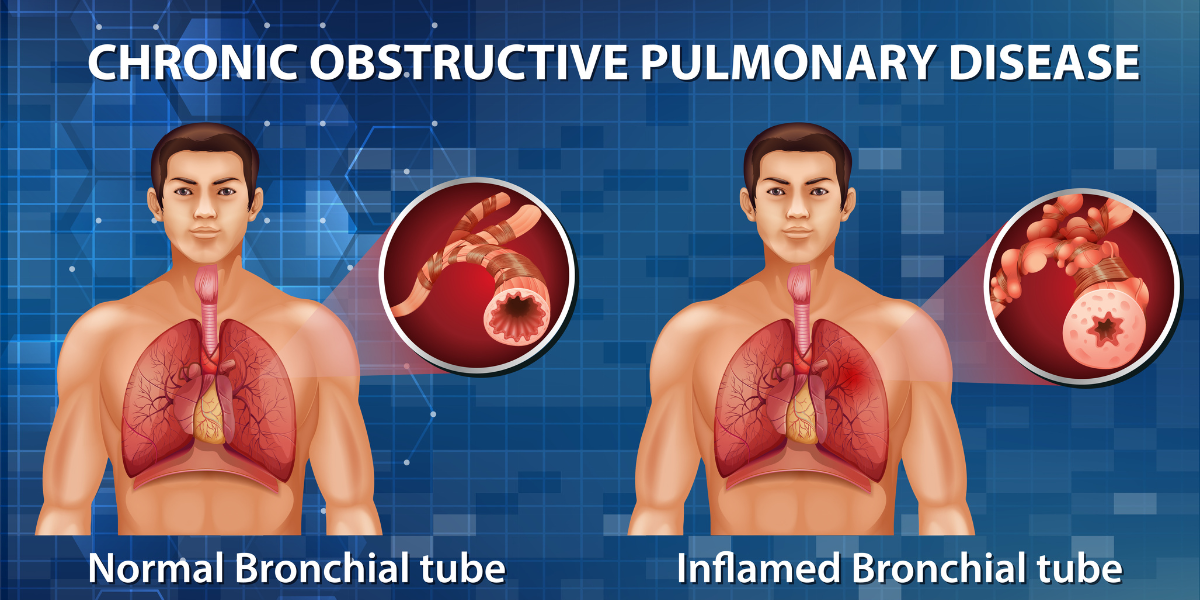COPD (Emphysema & Chronic Bronchiectasis)
Chronic Obstructive Pulmonary Disease (COPD) is a group of progressive lung diseases, including emphysema and chronic bronchiectasis, that cause airflow obstruction and breathing difficulties. COPD is primarily caused by long-term exposure to irritating gases or particulate matter, most often from cigarette smoke. Symptoms include chronic cough, mucus production, shortness of breath, and frequent respiratory infections.
Emphysema involves damage to the alveoli (air sacs) in the lungs, leading to decreased elasticity and impaired gas exchange. Chronic bronchiectasis involves the permanent enlargement of parts of the airways of the lung, often due to infections that cause the airways to become thickened and scarred. Diagnosis is usually confirmed through lung function tests, imaging studies, and medical history.
Managing COPD focuses on relieving symptoms, slowing disease progression, and improving quality of life. Treatment options include bronchodilators, steroids, oxygen therapy, pulmonary rehabilitation, and, in some cases, surgical interventions. Smoking cessation is crucial for patients with COPD to prevent further lung damage and improve overall health outcomes.


